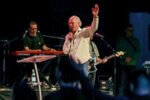Our discouragement can open the way for the adversary to kill, steal from and destroy us.
It is unusual for a thief to send a postcard to make an appointment with the owner of a house. Part of the evil genius of his craft is to come when he is least expected. As Christians we often live our lives unaware of the enemy and his efforts to destroy us.
In the New Testament, the thief is a figure of the unexpected. “If the master of the house had known what hour the thief would come, he would have watched” (Matt. 24:43, NKJV). We are living in a world in which evil takes no respite and where life demands vigilance that affords no vacation.
Are there times when we are more susceptible to temptation? Absolutely. Are there any circumstances or moods that catch us off guard and make us easy prey for Satan? Certainly but we don’t have to be ignorant of his tactics. Here are a few strategies the enemy uses to make us fall.
Tiredness. Esau is a striking example of a man who was taken unaware because he was tired. After he had been hunting in the wild, he returned home foot-weary and hungry to find Jacob preparing a meal. The sweet odor of the stew stimulated his palate, and he was willing to do just about anything to eat.
Then he discovered his brother would feed him if he would give him his birthright. In a moment of physical weakness, Esau sold his inheritance for a meal (see Gen. 25:29-34).
It’s easy for us to feel sorry for ourselves after working hard all day. The pressures of work can lead us to seek immediate gratification in things, people and even food. Esau wanted to recall the bargain, but it was too late. The act of an unguarded moment could not be reversed.
We are no different from Esau. We sometimes give in to tiredness for a moment of unusual indulgence and forfeit God’s blessings.
Happiness. Temptation can come in the middle of our most pleasant moments. King Herod is a perfect illustration of someone caught in this snare. During the night of his birthday party in the palace, Herod became susceptible to the allurement of the dancing girl. He was enjoying the intoxicating pleasure of the moment, but in that hour of dangerous happiness he made her an extravagant offer: “‘Whatever you ask me, I will give you, up to half my kingdom'” (Mark 6:23).
His defenses were down, and his excitement confused his judgment. When the girl asked for the head of John the Baptist, the king was sorry he had made such an impetuous offer. His delirium was changed to remorse and self-reproach. John the Baptist died on the altar of unguarded happiness.
Discouragement. When Peter was discouraged, the tempter approached. As people gathered around a lighted fire after Jesus’ arrest, Peter lurked in the shadows. But when he was confronted about knowing Jesus, he denied Christ three times (see Mark 14:69-72).
It is important to recognize how often we act out of character, or say or do something utterly different from our regular conduct. We succumb to the pressures of the moment and give more away than we can ever recapture.
It is dangerous for us to nurse moments of sadness because it throws us off guard. Our discouragement can open the way for the adversary to kill, steal from and destroy us.
Esau’s tiredness, Herod’s happiness and Peter’s gloom are good examples of pathetic preludes to temptation that would not have led to sin had the three men been alert to the enemy’s plan.
Derrick W. Hutchins is pastor of New Life Church of Orlando (Florida) Church of God in Christ (COGIC).







Leave a Comment
You must be logged in to post a comment.